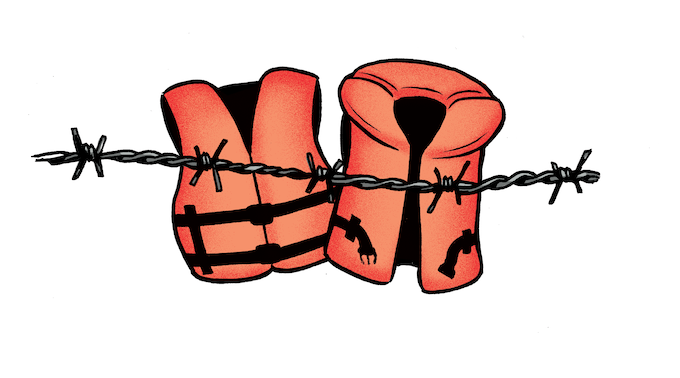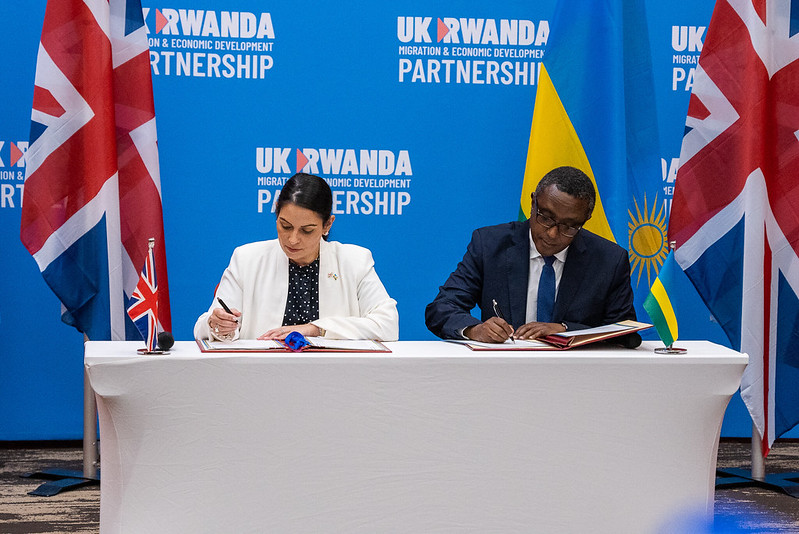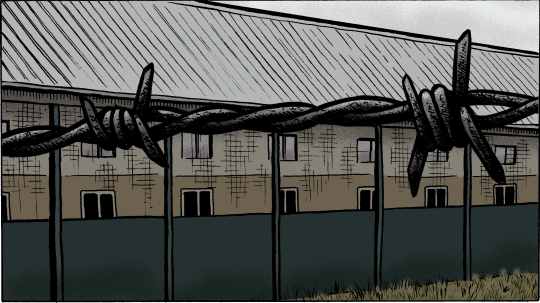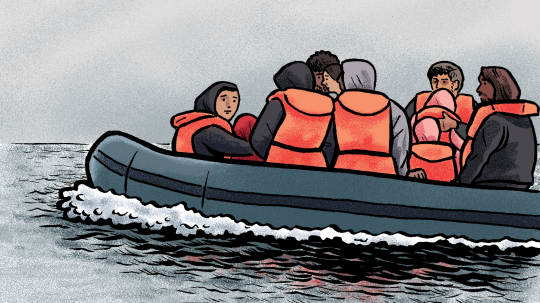Everyone in the UK has a right to personal freedom. This means you must not be imprisoned or detained without good reason. But for people arriving in the UK, there are concerns that the right to liberty is being breached by indefinite detention. We outline the legal framework, and someone who has experienced immigration detention first hand tells us why the right to liberty must be protected.
The right to liberty
If you are arrested, the Human Rights Act 1998 (HRA) protects your right to:
- be told in a language you understand why you have been arrested and what charges you face
- be taken to court promptly
- bail (temporary release while the court process continues), subject to certain conditions
- have a trial within a reasonable time
- go to court to challenge your detention if you think it is unlawful
- compensation if you have been unlawfully detained.
The UK is the only country in Europe with no time limit on how long someone can be held in immigration detention. Civil liberty groups argue that this breaches Article 5 as indefinite detention is not authorised by a judge and can be indefinite with “extremely limited” options for review.
The government forgets why people flee
“People always forget the reasons why people flee. People don’t understand how desperate people are. Basically, when you’re going to do it, you need to sit and consult your mind, your heart and your dreams. Everything that matters to you – you have to absolutely forget it and leave it behind,” said *Steven, a Lived Experience Campaigns Coordinator for Detention Action. He oversees the charity’s work with people with lived experience.
On the right to liberty and security, Steven said: “The second thing you think about is the risks involved and, most of most of the time, you think, “I may end up losing my life, or altering my life forever. So, I will never look back, I will never be the same again after I do this.” Some people are not aware of that.”
According to the government’s own data, approximately 31,790 people have made the journey to the UK by small boats since April. For those arriving in the UK, it will be the latest step in a long journey, often spanning years of upheaval and displacement.
“I know some people who spent two years in the Calais forest after spending a year and a half in Libya. And they are originally from Sudan. If somebody spends three years or five years on the way [to refuge], only to seek a place where they can finally feel safe, how can you threaten to detain them or move them again? This kind of approach is hostile, threatening, controlling and discriminatory as well.”
On the Home Office’s Rwanda Policy
The government has not only planned to open new immigration detention centres but has recently appeared in front of the High Court to have its Rwandan migration partnership assessed to determine whether it is compliant with international law.
The first part was heard over five days at the beginning of September. The court heard from ten individuals who had been told they would be sent to Rwanda, alongside arguments from charities Care4Calais and Detention Action, as well as the Public and Commercial Services Union.
Speaking about the Rwanda migration partnership, Steven stated: “These kinds of partnerships are very, very dangerous. If we even set aside the lawfulness of the policy, they are still dangerous. There is no transit service, like the existing scheme they had there with the people who are sent from Libya and Israel. They tried it and it failed for them. It’s not a permanent settlement.”
The verdict from the High Court has yet to be determined. However, it is though that if the court finds the policy to be unlawful, it will make it harder for the government to send asylum seekers abroad under the agreement, potentially voiding the partnership.
Speaking about the upcoming verdict, Steven said: “First of all, if the policy is found unlawful it will be a huge sigh of relief for the people seeking asylum who could have been removed to Rwanda under this policy, those who have been taken off the attempted flights and for campaigners.”
He continued: “If it does take place, it will highlight the shameful precedent set by the Home Office in advancing this policy. I think, from personal experience, people who are willing to go through the risks to come to the UK, I think it’s very important for those refugees and asylum seekers to see that happen.”
Those in power have forgotten why conventions to protect our rights were made
The 1951 Refugee Convention and its 1967 Protocol are the key legal documents that protect the rights of refugees on an international scale. States have to cooperate with the United Nations Refugee Agency to ensure that the rights of refugees are respected and protected. The UK has been a signatory of the convention since it was established over 70 years ago. The UK is also a party to the 1954 Convention relating to the Status of Stateless Persons and the 1961 Convention on the Reduction of Statelessness.
“It’s always interesting, because the UK has been at the baseline of these conventions, the 1951 Refugee Convention, the European Convention on Human Rights, the UK was among the main drivers of all these kinds of laws. I mean, I wonder if they forgot why in the first place, they actually thought that people should be treated equally and gave all these conventions global jurisdiction only now to start denigrating them, peeling them off like an onion. You wonder, what will we be left with?,” said Steven.
He told us about the varying treatments received by people fleeing their homes to seek asylum, particularly between the global south and in Europe.
Speaking about the ways in which asylum seekers are treated, Steven said: “I hate to say but the staggering differences are clear with the cases of people fleeing Ukraine. This was more humanely managed because people were being housed actually in the homes of other people rather than on an island or by shifting them off to a third country. The capacity is there – let’s walk together and find it.”
What is the future of immigration detention?
Detention Action has called for an end to indefinite detention and avidly campaign for detention reform, however the future of immigration detention is not set in stone.
Speaking to EachOther about the future of detention, Steven explained how this is a global issue. He said: “I don’t think Rwanda has the capacity to take all the people who are here. It is a global problem, a global crisis that needs cooperation, not isolation to find a solution.”
In an ideal world, no one’s freedom or safety would be jeopardised, and everyone’s right to an adequate standard of living would be observed. However with growing tension in many parts of the world, people continue to leave their homes behind in search of safety and security.
Steven said: “I would just love, first of all to see the UK being a place where there is no need for anybody to be detained in the first place and everyone is allowed their right to liberty. I just wish to remind political leaders why the 1951 refugee convention was created in the first place.”
* Steven’s name has been altered, changed or withheld for anonymity.





